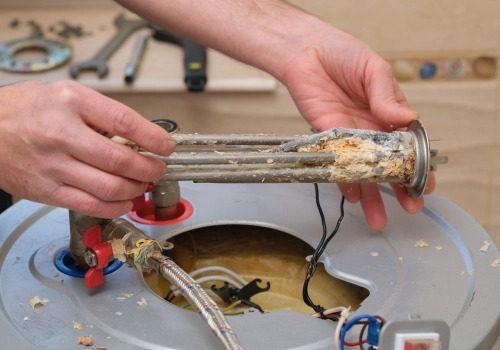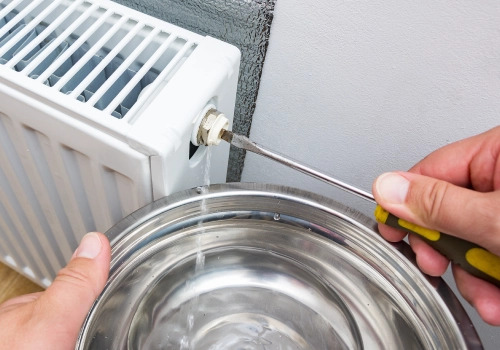Central heating is essential for keeping homes warm, especially during the colder months. However, like any system, it can sometimes fail. Understanding the common causes of central heating breakdowns can help homeowners identify issues early and seek professional help before the problem worsens. In this post, we’ll explore the most common reasons why central heating stops working, answer some frequently asked questions, and provide advice on keeping your system in good condition.

Common Causes of Central Heating Failure
Common Causes of Central Heating Failure
Thermostat Issues: One of the first things to check when your central heating isn’t working is the thermostat. If it’s incorrectly set, has dead batteries, or is faulty, it may not be sending the correct signals to your boiler. You can try adjusting the temperature or replacing the batteries to see if that resolves the issue.
Low Boiler Pressure: If the pressure is too low in your boiler, it won’t be able to circulate hot water effectively. This can happen due to leaks in the system, recent bleeding of radiators, or natural pressure loss over time. In this case, you should check the pressure gauge on your boiler – if it’s below one bar, you may need to pressurise the system (or, a central heating repair company can often help, and provide preventative maintenance to stop the same problem happening again).
Air in the Radiators: Trapped air in the radiators can prevent them from heating up properly. If your radiators feel cold at the top but warm at the bottom, they may need bleeding. This is a simple process that you can perform yourself with a radiator bleeding key; bleeding a radiator releases trapped air and allows hot water to circulate properly.
Frozen Condensate Pipe: During particularly cold weather, the condensate pipe (which carries waste water from the boiler to the outside drain) can freeze, causing a blockage that prevents the boiler from functioning properly. If this happens, you may hear gurgling noises from the boiler or notice an error code on the display. Thawing the pipe with warm (not boiling) water can help restore normal operation.
Faulty Motorised Valves or Pumps: The motorised valves and pumps in your heating system help control the flow of hot water; if these valves and pumps fail, your radiators may not heat up properly. Professional heating engineers can diagnose and replace faulty parts if needed.
Sludge or Debris Build-Up: Over time, sludge, rust, and debris can accumulate inside the central heating system, which can lead to blockages and inefficiencies. Power flushing is a deep cleaning service that professional engineers like E.C. Cole can undertake; this helps to remove sludge, improve heating efficiency, and prolong the life of your system.
Pilot Light or Ignition Failure: Older boilers may have a pilot light that needs to stay lit for the system to function. If the pilot light goes out, the boiler won’t heat water. Newer boilers use electronic ignition, which can sometimes fail due to electrical faults. In either case, a Gas Safe registered engineer like E.C. Cole should inspect the boiler to determine the cause.

How Long Should a Central Heating System Last?
How Long Should a Central Heating System Last?
The lifespan of a central heating system depends on the quality of installation, maintenance, and type of boiler. On average, boilers last 10-15 years (though regular servicing can extend their lifespan), radiators and pipework can last over 20 years, but sludge build-up or corrosion may require earlier replacement, and pumps and motorised valves may need replacing every 10 years, depending on usage and maintenance. Regular servicing, bleeding radiators, and occasional power flushing can help keep your system running efficiently for as long as possible.
If your central heating has stopped working, checking simple issues like thermostat settings, boiler pressure, and radiator airlocks can help resolve minor problems. However, for more complex faults, it’s always best to call E.C. Cole to diagnose and fix the issue safely. Regular servicing and maintenance can also prevent breakdowns and keep your heating system running smoothly for years to come.
If you’re experiencing heating issues, don’t hesitate to contact a trusted professional for advice and repairs.



